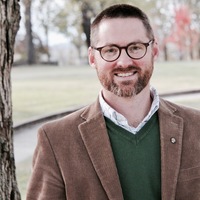
A House with Open Doors: Betsie and Corrie Ten Boom
Public apologies do not come easily, especially from heads of state. So, when the Netherlands’ Prime Minster Rutte delivered a historic apology at an event commemorating the 75th anniversary of the liberation of Nazi concentration camp Auschwitz (January 27, 1945), many paid attention. The Prime Minister highlighted the tragic truth that before the Nazi occupation of the Netherlands, approximately 140,000 Jews were living in the country, and afterward only 38,000 remained. Rutte acknowledged that those in leadership simply did not do enough to protect their Jewish friends and neighbors, and in sum apologized for not putting up more of a fight.
However, there were those who did stand up to the evil in their midst. An unsuspecting group of Christian freedom fighters opened their doors, smuggled ration cards, built trap doors, and risked their lives for the sake of their persecuted neighbors. Casper Ten Boom (age 83), and his two daughters Corrie (age 50) and Betsie (age 57), transformed their home into a hiding place and helped established an 80-person resistance movement that resulted in the saving of over 800 Jews during the German occupation. Last year, while on Sabbatical in the Netherlands, my family and I were able to walk through the Ten Booms’ home and experience afresh the amazing life and ministry of Corrie and Betsie Ten Boom. Much of their life and legacy comes to us through the lifelong publishing and speaking ministry of youngest daughter Corrie (1892-1983). While the Ten Booms’ work was underground, their story should not be.
A House with Open Doors
The Ten Booms lived in a narrow multi-story house just off the main square in Haarlem, where their father Casper ran a shop as the town watchmaker. Corrie was a bright young woman who eventually learned to read English, French, German, Hebrew and Greek, and at the age of 32 became the nation’s first licensed watchmaker. Bible reading, prayer, and family worship were a regular part of the family’s life together, and their faith prompted them to engage with their neighbors much more deeply than by simply fixing watches. Corrie’s brother Willem became a minister in the Dutch Reformed Church, and Corrie spent numerous hours organizing and serving with Christian girls’ clubs in the region. Having never married, both Corrie and Betsie devoted much of their lives to ministering to young girls in the Netherlands.
The 1942 Nazi deportation of Jews presented the Ten Booms with a weighty challenge as they tried to meet the needs of their friends and neighbors, but their lives had been characterized by serving those in need for many years prior. Corrie reminisces of her home growing up, “Our house was not very big, but it had wide open doors.”[1] In the years after World War I, the Ten Booms started filling the empty rooms in their home by taking in refugee children, orphans, and missionary children. While the Ten Booms’ decision to begin hiding Jews in their home was a significant one, it was simply the next logical step in a pattern of life characterized by serving those in need around them. Christian hospitality—in the face of danger—did not explode in a moment of spontaneous conviction for the Ten Booms. Instead, it was a bumper crop of spiritual fruit that had grown on the tended vines of Christian virtue.
Courage in the Night
Since the Ten Booms were not Jewish, the Nazi occupation of the Netherlands did not present a direct threat to them as a family. Recognizing God’s love for their Jewish friends and neighbors, the family was propelled to care for these innocent lives threatened by the powers of evil. Later on, when the family came to the attention of the local officials, a young officer told Casper he was too old for a work camp and to return home and “behave himself”—to which he replied, “Young man, if you leave me here today, tomorrow I will open my door to anyone who needs help.”[2]Recognizing God’s love for their Jewish friends and neighbors, the family was propelled to care for these innocent lives threatened by the powers of evil. Click To Tweet
From spring 1942 until the family’s capture on Feb. 28, 1944, the home became a common stop for Jewish and non-Jewish Nazi resisters on their way to refuge. The location of the house was strategically central, but consequently great caution needed to be taken. With the help of the Dutch National Underground, the Ten Boom house was outfitted with a hidden alarm system and a secret bricked room inside of Corrie’s bedroom. The hiding place was entered through a trap door in the bottom of the closet. Because raids would often take place at night, residents would frequently carry out “training exercises”, waking people up with flashlights and shouting instructions, all in preparation for helping them get to the hiding place in a matter of minutes. The Ten Booms’ realistic awareness of danger was offset by their desire to keep their home lively and uplifting in the midst of the looming fear. Songs, music, and bed-sheet-decorated skits filled the parlor with laughter, and like Paul and Silas, their songs in the night testified to a kingdom and a power that Nazis could never overthrow.
Faith in God’s Sovereign Plan
Individuals staying with the Ten Booms were never left wondering why these people took such risks to protect them. While the Ten Booms did not aggressively seek to convert their Jewish hiders, they were quite open about their faith and believed their actions would speak for themselves. Indeed, they did. One non-Jewish resistor fleeing capture wrote: “Their radical Christian life-style spoke to me. Such as the way they freely spoke about their personal relationship with Christ…. They not only spoke about it, but they lived it—at risk of their lives, it would turn out.”[3]
Eventually, in 1944 the Ten Booms were betrayed by a man claiming to need help for his wife. Corrie made arrangements to provide the man with money for his wife, but instead the house was raided by Gestapo agents that evening. When the alarm sounded, six terrified people (four Jews and two Dutch underground workers) scampered into the hiding place in Corrie’s bedroom. Despite officers spending the next two days camped out in the home, those six people finally emerged into safety after spending more than 47 hours in the terrifyingly dark hiding place. This wonderful news would eventually reach Corrie in a prison at Scheveningen when her sister sent her a secret message: “All watches in your closet are safe.”
Casper died only two weeks after being captured, and Corrie and Betsie were eventually shipped in cattle cars to Ravensbruck. Miraculously, Corrie smuggled a pocket Bible into the camp, and the sisters would regularly hold times of Bible reading and prayer in their lice-infested barracks. Betsie encouraged Corrie to praise the Lord for the lice and the fleas in their bunk house; because of the pests, the guards didn’t want anything to do with the women, and they could carry out their ministry throughout the barracks. Bestie eventually grew ill, and Corrie constantly prayed for her healing. But on December 16, 1944, Betsie died. Corrie deeply grieved the loss of her sister, but she remembers her thoughts as she looked at her deceased sister one last time: “I could only thank and praise the Lord that He had taken her to himself.”[4]
On December 30, 1944 Corrie was released from Ravensbruck and started the long journey of faithful ministry that would come to characterize the next 38 years of her life (she lived to be 91!). Corrie traveled the world proclaiming the good news of Christ’s kingdom, telling others how her faith in God’s sovereign plan had sustained her in the darkest moments imaginable. Corrie and Betsie were not sinless saints, but they lived remarkable lives of love, courage, and faith. As we continue to live a world plagued by sin and violence, may the Ten Booms’ example encourage us to open our hearts and homes, take action for the needy and the oppressed, and trust in the sovereign hand of the Lord to sustain us in our work.
Footnotes
[1] Corrie ten Boom with Carol C. Carson, In My Father’s House (Grand Rapids: Revell, 2000), 49.
[2] Hans Poley, Return to the Hiding Place (Eglin, IL: LifeJourney, 1993), 145.
[3] Poley, 101.
[4] Corrie ten Boom, Jesus is Victor (Grand Rapids: Revell, 1985), 64.

